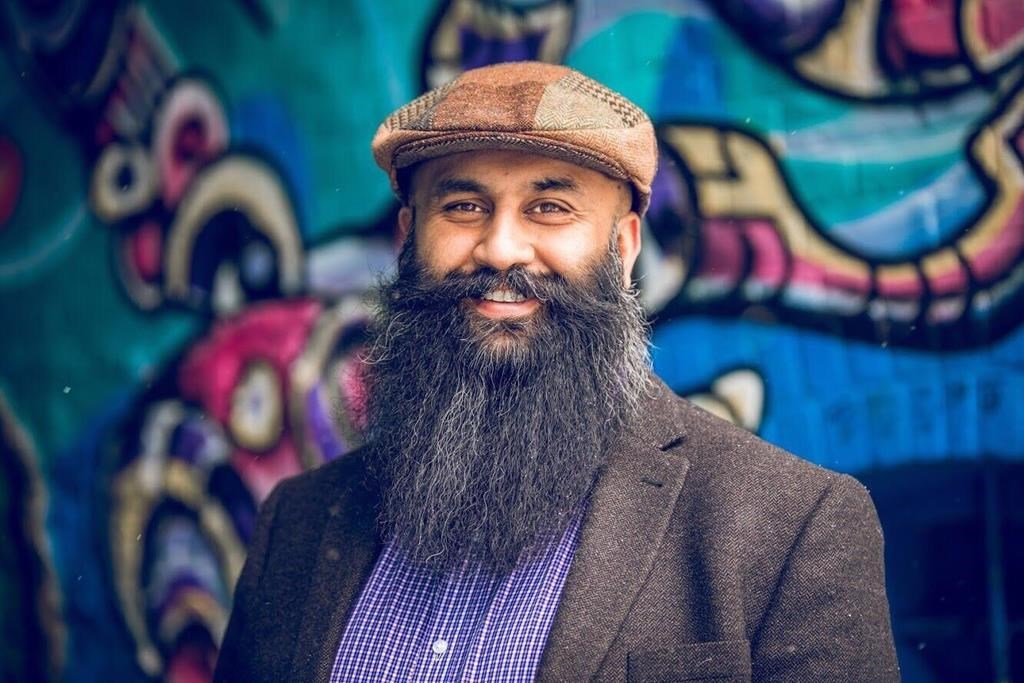Newfoundland and Labrador’s growing diversity is not yet reflected in its overwhelmingly white slate of elected officials – something Hasan Hai, a Liberal candidate in the upcoming provincial election, hopes will change.

The percentage of racialized Newfoundlanders and Labradorians more than doubled between 2001 and 2016, climbing from 0.8 per cent to 2.3 per cent, and the province is now promoting immigration and diversity as one solution to its economic hardships.
But while the province has elected some Indigenous representatives to the House of Assembly, its members are still largely white.
READ MORE: Newfoundland and Labrador provincial election called for May 16
The Pakistan-born Hai, who’s running in Mount Pearl-Southlands in the May 16 election, said that after growing up in Ottawa, he realized the othering effect of only seeing white politicians on the news.
He said it was a special moment to see the pride in his own children’s faces when he stood with Liberal party incumbents and candidates as premier Dwight Ball dropped the election writ last month.
“My children were right behind the cameras looking at me smiling and it was everything I could do not to cry myself,” Hai recalled in a recent phone interview.
Hai said he hopes more diversity in politics will encourage more people in the province to see elected office as a place for them.
Amanda Bittner, a political science professor at Memorial University, conducted a study a few years back that found voters in Newfoundland and Labrador were not more anti-immigrant than the rest of Canada.
She said that for the most part, Canadian voters will cast a ballot for their preferred party’s candidate, rather than make their choice based on the person’s race or gender.
But Bittner said Newfoundland and Labrador does have to contend with the “Come From Away” factor, which she describes as “the notion that folks who are not ‘from here’ don’t get a say in how things work.”

Get breaking National news
“While we might outwardly say that we don’t believe this, in actual fact I think it’s fairly true,” Bittner said in an email.
For Hai – hardly a Come From Away, with a decades-long connection to the province – running for office seemed like a natural career move, and he appears to be a natural candidate.
WATCH: With N.L. and PEI adopting plastic bag bans what comes next for the rest of Atlantic Canada

The now 41-year-old moved to the province in 2007 after visiting on and off for years. A previous job took him to almost every rural corner of the island before moving to Mount Pearl, a city in the St. John’s metropolitan area, a few years ago.
Hai is well known for his charity work like co-founding the hit “merb’ys” calendar with the Newfoundland and Labrador Beard & Moustache Club. The latest edition featured photos of burly, mermaid-clad men posed in dynamic locales and raised over $200,000 for Violence Prevention NL.
Hai said campaigning and meeting with voters has been an overwhelmingly positive experience, but he hasn’t been spared from – mostly anonymous – racist vitriol online.
Shortly after announcing his candidacy, an anonymous Facebook page surfaced called “Who is Hasan Hai?”
The page questioned Hai’s background before moving the province and shared videos stoking concerns over “illegal border crossings.”
The since-deleted page attracted some negative comments, like people suggesting only those born in Canada should run in elections, but many more came to Hai’s defence, calling the page racist and defending Hai as a valued community member.
Hai himself good-naturedly commented directing people to his LinkedIn page showing his career history, inviting people to simply ask him if they have questions about his life story.
“You single me out in this election just because you want to cast that fear and doubt, I guess it reveals the motive behind it,” he said by phone.
READ MORE: N.L. Liberals deliver optimistic 2019 budget with provincial election looming
Hai said he chalks these kind of attitudes up to mostly fear rather than hate, and he said talking about the presence of racism and bigotry in an otherwise friendly place is the best way he sees to weed it out.
“Everyone talks about how friendly Newfoundlanders and Labradorians are and I completely accept that, but it’s not a complete binary,” Hai said.
“We can be both friendly and live in an environment, society, where racism and bigotry, you know, they live here, and one thing I’m really passionate about is calling it out and not giving it room to flourish and grow.”
Bittner said people of colour and women often deal with “online trolling” when running for office, and even with the Come From Away factor she said Hai still stands a decent shot at being elected as a well-known face in the community.
“I don’t think this (online trolling) is at all a majority opinion nor will it detract from his chances of success,” she wrote.
Bittner said she suspects the population is becoming more open to non-traditional candidates, pointing to increasing levels of visible diversity and the rough political shape the province is in.
“The ‘old ways’ of doing business are obviously not working,” Bittner said. “I suspect there is appetite for change, which includes visible diversity of candidates and perspectives.”







Comments